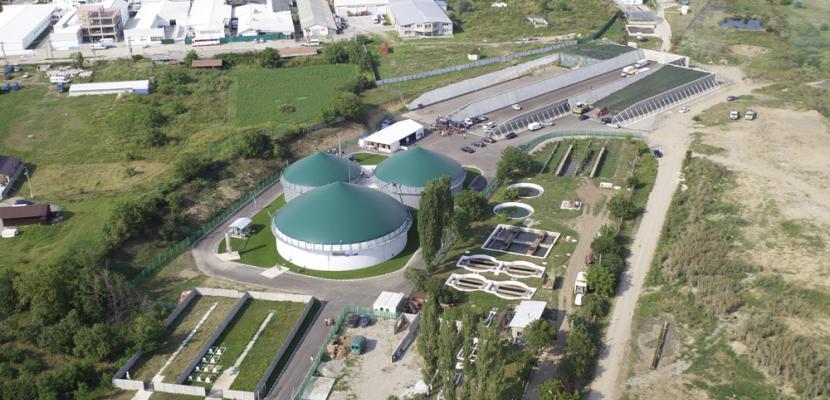
Biogas and fertilizer from agro-food waste

About this good practice
Features:
- 1063 kW installed power
- Hours of operation: 8 400 hours / year
- Processed organic substrate: 60 t / day
- Electricity production: 25,5 MWh / day
- Heat output: 20 MWh / day - approx. 1 t / h (6,5 bar) + hot water 70 ° C
- Digestate (fertilizer) production: 18 000 t / year
- Efficiency: over 94%
2018 values::
- Biowaste transformed into energy: 22 970 t (11,94% biomass from agriculture, 88,06% organic waste collected)
- Electricity produced: 8 200 MWh delivered into the National Grid
- Thermal energy produced: 7 000 MWh
- Biogas production: 4 000 000 Nm3
The practice contributes to the circular economy of biological flows by producing renewable energy from biowaste and by using the digestate in organic farming. Main stakeholders and beneficiaries are CrisTim factory and farmers.
Expert opinion
As biogas technology has the potential to play a major role in the transition to a circular economy and the decarbonization of the energy sector, this good practice is in line with the EU Circular Economy Action Plan and Climate policies. Across the European Union, somewhere between 118 and 138 million tons of bio-waste are generated every year, of which currently only about 40% is effectively recycled. National, regional and local governments are required to provide separate collection or recycling of biowaste at the source under the revised Waste Framework Directive. As up to 50% of municipal solid waste is organic, the bio-waste fraction plays an important role in the transition to circular economy and contributes significantly to meeting the overall recycling target of 65% by 2035. Treating biowaste in a biogas plant contributes to achieving these targets.
Resources needed
Evidence of success
• Over 5,5 years of operation in the field of renewable energy
• Over 46 000 hours of operation
• Over 94% efficiency
• Electricity produced: over 48 000 MWh
• Heat generated: over 35 500 MWh
• More than 50 000 tons of organic waste collected and exploited - environment protection
• Over 22 500 000 Nm3 of biogas produced
• Over 90 000 tons of digestate produced. Digestate is checked for contaminants and sold to local farmer as fertiliser.
Potential for learning or transfer
- using various organic substrate: energy crops, vegetable residues, manure and organic waste
- the beneficiary of the resulting thermal energy can be any industrial consumer using hot water, technological steam and hot air - the plant can deliver an important amount of technological steam at a 25% lower cost.
- energy supply is predictable (over 8000 operating hours / year)
- it makes possible to store energy (biogas)
- such a plant creates 5 jobs and another 10-15 jobs in agriculture in the neighboring area
- electricity and heat recovery is subsidized by green certificates: 3 green certificates for each MW / h delivered into the national grid, which will help the investors to recover their investment in 8-10 years.
The model could be used by rural communities for valorisation of bio-waste and renewable energy production.
Further information
Website
Good practice owner
You can contact the good practice owner below for more detailed information.
Genesis BIOPARTNER

